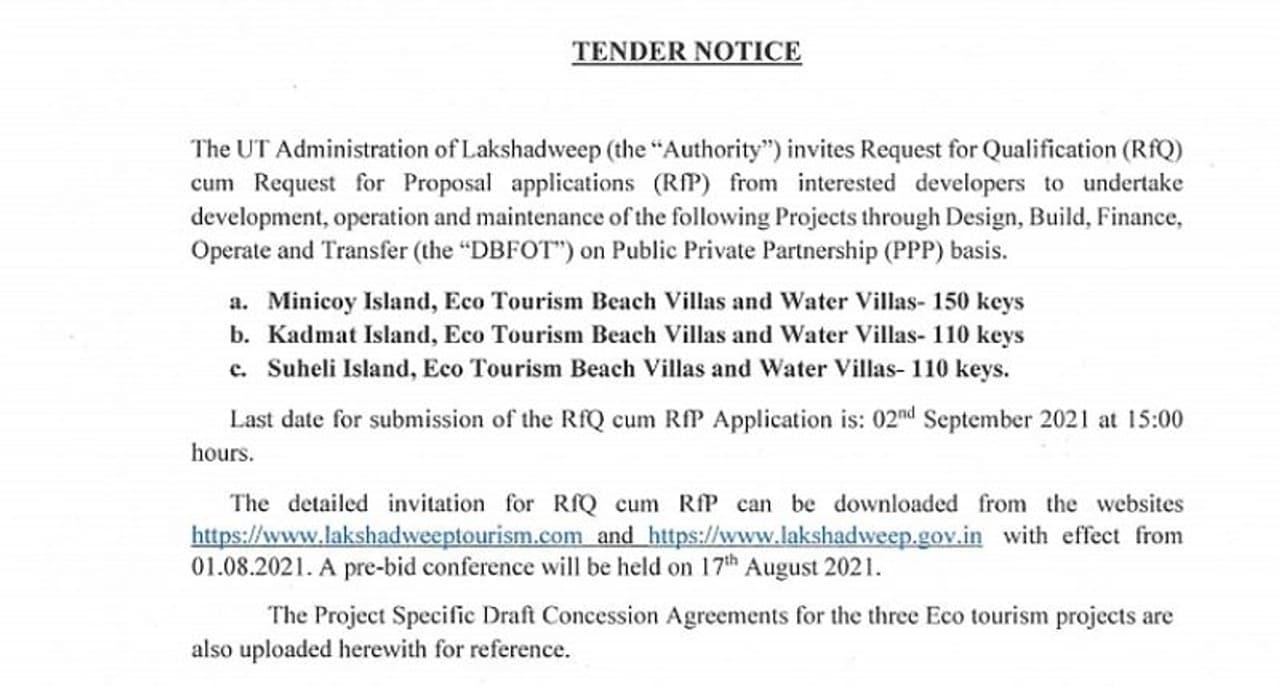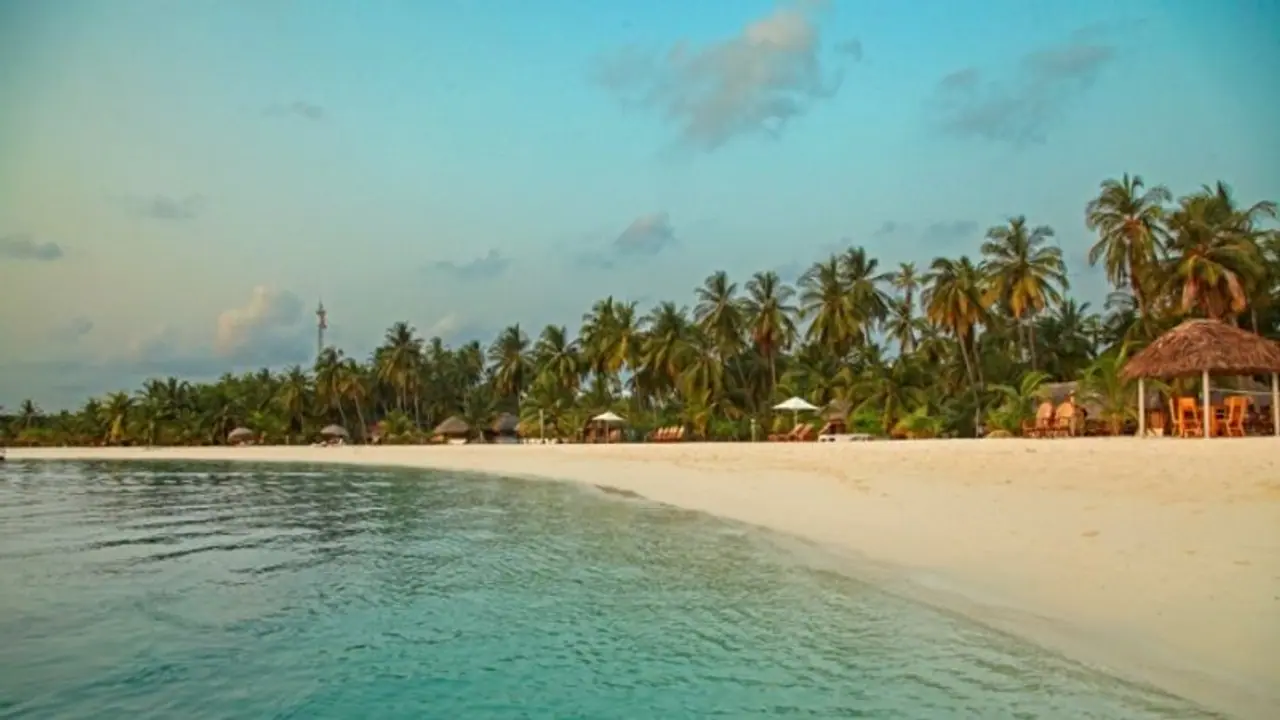What drags the development plan into controversy is that there has been opposition from scientists and marine biologists who term the project as a threat to the lagoons and beaches.
Lakshadweep administration is back into the spotlight with its decision to build 370 eco-tourism villas and water villas in three different parts of the island, on the lines of similar structures in the Maldives.

What drags the development plan into controversy is that there has been opposition from scientists and marine biologists who term the project as a threat to the lagoons and beaches.
Lakshadweep is an archipelago comprising 36 islands with a total area of 32 square kilometres.
On Saturday, the Union Territory's administration invited Request for Qualification and Request for Proposal from developers willing to undertake development and maintenance of eco-tourism villas and water villas in Minicoy, Suheli and Kadmat islands.

The villas are to be built through design, build, finance, operate and transfer mode on a public-private partnership basis.
The requirements listed in the RFP include the use of eco-friendly material and pre-cast concrete technology for the construction, setting up of desalination plant and 2152 kW (Rooftop + Floating) solar power unit at the resort.
Developers have also been granted 75 years to raise funds and complete the tourism project.
The Lakshadweep administration said it would facilitate obtaining applicable permits subject to the developers submitting a timely-completed application.
The RFP notes that the resorts will be five-star compliant, and developers would be given liquor licenses within one month of applying for the same. To recall, currently, liquor is banned across the Union Territory.
The estimated cost of all three projects combined is around Rs 806 crore.
The objection to the project
According to a report in Carbon Copy, which that tracks developments in the climate and energy sector, any development plan needs to consider the social and environmental fragility of these islands and their carrying capacities.
Sajan John, Wildlife Trust of India marine biologist, told the news portal that the poorly suited development plans arise from a lack of basic understanding at the decision-making levels.
He claimed that bureaucrats who come up with the development plan do not understand that unlike the Andaman and Nicobar Islands, which has many trees, mountains and plains and provides scope for development, Lakshadweep rests on fragile coral reefs made of calcium carbonate and are easily destructible.
He also said that a lot of excavation would need to be done to make way for big ships to harbour at the proposed project sites. That would require the removal of coral reefs, thus causing irreversible damage to the region's ecology.
To recall, in June 2021, a total of 60 scientists and researchers had appealed to President Ram Nath Kovind to withdraw the Lakshadweep Development Authority Regulation, 2021, which empowers the administration to acquire any piece of the Union Territory's land for development.
